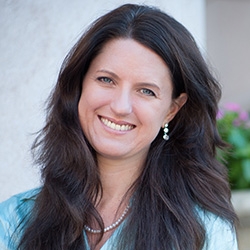

NVC Resources on Responsibility
-
One way to understand trauma is it means we got a blow greater than our nervous system can tolerate – then we move into hyperarousal, and then hypoarousal or dissociation. This cycle can continue long after. Here, we're not able to fully process emotional cues, information, our body, and others. It's important we consider re-writing the cultural paradigm of separation so that our trauma doesn't get marginalized.
-
Ask the Trainer: Is a confidentiality agreement typically used in NVC practice groups?
-
This handout defines and contrasts "empathy" alongside "responses may meet needs, but are not empathy" (such as advice, correcting, consoling, etc).
-
Here are 10 tips for empathy buddy practice. It includes a handout identifying 15 non-empathy responses to step aside from when you practice.
-
Yvette Erasmus shares Terry Real's grid as a tool for exploring a spectrum of emotional responses. We all have feelings and sometimes we get dysregulated or frozen up. How do you want to express and be in connection with other people? Can you attune to the relational context that you are in?
-
Empathy alone can be unreliable in guiding compassionate action. As seen in historical events, military training, personal anecdotes, and scientific experiments, empathy alone may not prevent people from harming others. A sense of duty or obedience, often instilled through fear of punishment and shame, might inhibit empathic action. The antidote may be to fostering empathy without resorting to control, shame, or punishment.
-
Celebrate love with Rodger Sorrow! Listen in as Rodger discusses a range of topics such as defining love, religion and love, and how to handle unloving responses.
-
Raj Gil offers tools and dialogue to help you respond to anger with awareness & care in the moment.
-
The impulse to say "I love you" is an opportunity to check-in both with our level of presence (eg. are we saying it by rote?) and also with what we really mean in that moment (eg. what are the needs and real purpose deep beneath the word "love"?). This can invite us to explore a deeper, more heartfelt way of communicating and being...
-
We're in difficult times - possibly at the brink of extinction. What can we do in response? Some nonlinear steps: A.) Notice what isn't working; B.) Mourn so that we can move "towards" from an expanded space inside; C.) Analyze to bring a fuller understanding of what's happening and what's needed; D.) Reframe our inner and outer narratives; E.) Discern what we can contribute; F.) Care; and G.) Bring in support for more resilience and creativity.

Quick Links
Subscription Preferences
Stay In Touch!
Looking for ways to keep up with NVC Academy news, get special offers, free resources, or words of inspiration? Here are five ways to stay engaged:









